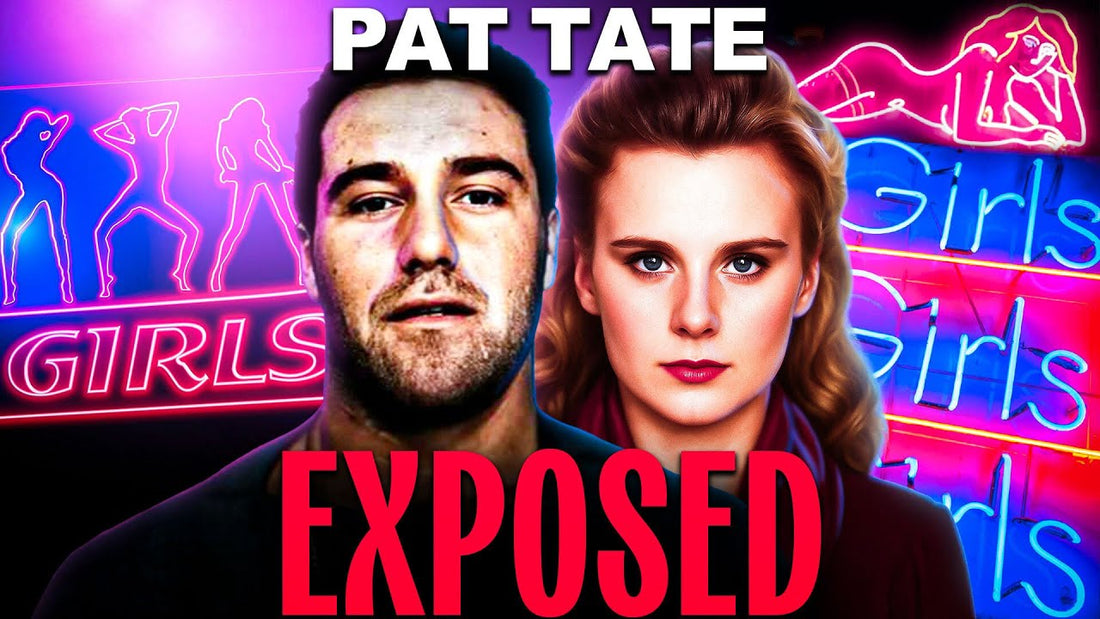For years, rumours swirled that Paula Jackson aka “Wild Child” was dead. She wasn’t. She was keeping her head down. In a rare, long-form interview, Paula breaks her silence about her life with Pat Tate, the internal frictions with Tony Tucker and Craig Rolfe, and what she believes really brewed beneath the Essex Boys legend. It’s part trauma memoir, part street history and very much her side of the story.
Who is Paula “Wild Child” Jackson?
Born in Essex, raised by a martial-artist father, Paula says she learned early to stand her ground. A turbulent home life, time in young offenders’ institutions, and brushes with the law hardened her. “You can’t learn villain,” she says. “You’re born with it.” The nickname “Wild Child” stuck first as a dancer who could light up a club, later as a woman who, by her account, knew how to read a room full of serious men.
Meeting Pat Tate: beyond the movie mythology
Paula met Pat Tate at 17 going on 18, fresh out of jail. She insists he wasn’t the one-note caricature some films made him out to be. He could be charming, generous, and loyal the sort of man who’d insist on private rooms in hospital, Sunday envelopes for Nana, and a hundred long-stemmed roses just because. She laughs about blasting Snoop Dogg and Biggie in the motor, role-playing Irish accents, and the infamous Vivienne Westwood dress test Pat set to check for “class and criminality.”
Crucially, Paula says she was more than a girlfriend. Pat listened to her. “Everything was going through me before it went through anyone else,” she recalls. That trust, she believes, bred resentment around the table.
Inside the Essex Boys dynamic: loyalty, jealousy, and a lot of noise
On the firm’s politics, Paula’s view is blunt: Tony Tucker and Craig Rolfe were “doing stuff behind Pat’s back and putting the blame on Pat.” She paints “Nipper” (a one-time associate) as openly resentful of her presence and claims Pat eventually froze him out after “disrespect.” According to Paula, the power lines shifted as Pat drew her closer: “I’d kind of taken Nipper’s place and I looked better.”
These are her allegations, but they frame a familiar theme in Essex Boys lore: status, jealousy, and thin lines between business and betrayal.
Violence, survival, and a brush with firearms
Paula doesn’t glamorise it, but she doesn’t flinch either. She recounts assaults, a firearms case, being shot in the leg, 52 head wounds, and a “chopper” attack while people tried to take parcels off her. She says her PTSD and a hard-learned calm-before-the-storm mode kept her alive. At one point, she claims a judge told her he could tell the weapon she handled was real “by the way you handled it.”
It’s raw, uncomfortable listening and a reminder that behind every headline were people living with the fallout.
The hospital shooting: Paula’s account
One flashpoint she describes in detail is the hospital shooting of Pat Tate prior to the murders. Paula says a nervous gunman came through a bathroom window with an “old revolver.” Pat, she claims, raised his arm to block the shot and laughed at the would-be hitman’s shaky hands. Paula asserts the triggerman was “Nipper”, and that this sprang from personal grievances, not just business. (Again: this is her version of events.)
Business, “poodles,” and the Essex hustle
Was Pat a “drug dealer who ran clubs”? Paula says it was bigger and broader: car lots up the London Road, security, possible gym interests, and a network of escorts (“poodles”) she hints she helped organise. Pat, she insists, called himself “a businessman, not a villain.” Whether you buy that rebrand or not, it does echo the late-80s/early-90s Essex blend of nightlife, cars, and cash that set the stage for everything that followed.
The night in Rettendon: theories, instincts, and what she won’t say (yet)
On the Rettendon murders (Pat Tate, Tony Tucker, Craig Rolfe), Paula chooses her words. She says she’s never watched the films and dislikes the mythology. Her working theory: “Two people thought they were walking away from that. There was only one set-up.” She suggests patterns in the shot placement (two in the back of the head; one shot from the front) that, in her opinion, imply a planned, professional job not a random lane ambush. She also stresses the forensic neatness reported after the fact points to people who knew what they were doing.
Pressed on Mickey Steele and Jack Whomes, Paula won’t name triggermen. She leans toward “guilt by association” rather than the idea that those two personally pulled the triggers. But she stops short of definitive claims, promising more in a book and future sit-downs.
Aftermath: going to ground and faking her own death notice
Paula says that when the news broke, she understood she was a target by proximity. To protect her family, she claims she paid someone at the local paper to run a line implying she’d been killed, then slipped out of Essex for years. She learned to survive in London’s West End, carried her trauma, and tried not always successfully to stay clear of the life. “I’m here for my grandkids,” she says now. “And I’ve got receipts.”
Why speak now?
In part, it’s therapy. In part, it’s legacy. Paula wants her kids and grandkids to know the person she says Pat was, and the role she says she played not the movie cut-out. She’s working on a book (working titles floated include “Rise of the Wild Soldier”), promising documents, photos, and corroboration to back her side of the story. She also hints at police asking her (years later) to point at alleged corrupt officers from the 1990s something she says she refused on principle.
The bigger picture: Essex Boys, revisited
Say “Essex Boys” and people see a lane, a Range Rover, and a closed case. Paula’s interview reopens the human context: rivalries, insecurities, loyalty tests, and a constant sense that success painted a target on your back. Whether you accept all of Paula’s claims or not, her account adds texture a woman at the centre of a very male story, claiming she wasn’t just in the room but in the loop.
Final word
Paula’s not asking to be canonised. She knows her past is messy. But she is asking that, before you quote a movie line, you hear a first-person one. And that’s what this world-exclusive delivers: a voice from inside the Essex storm, finally speaking in full sentences.

